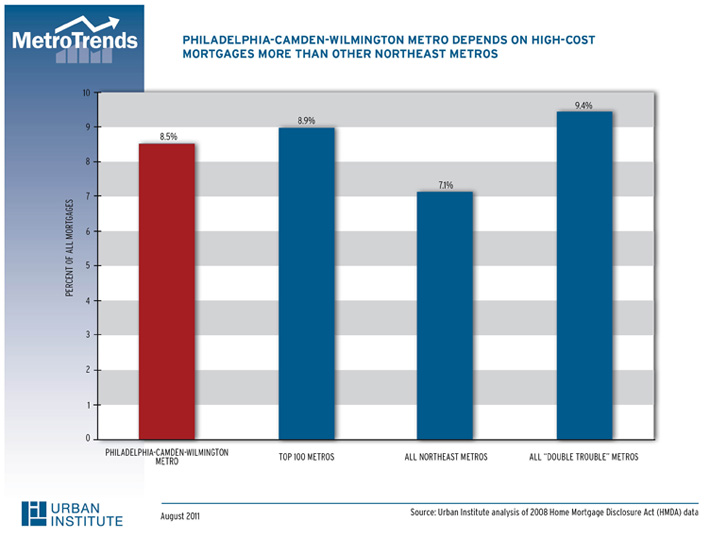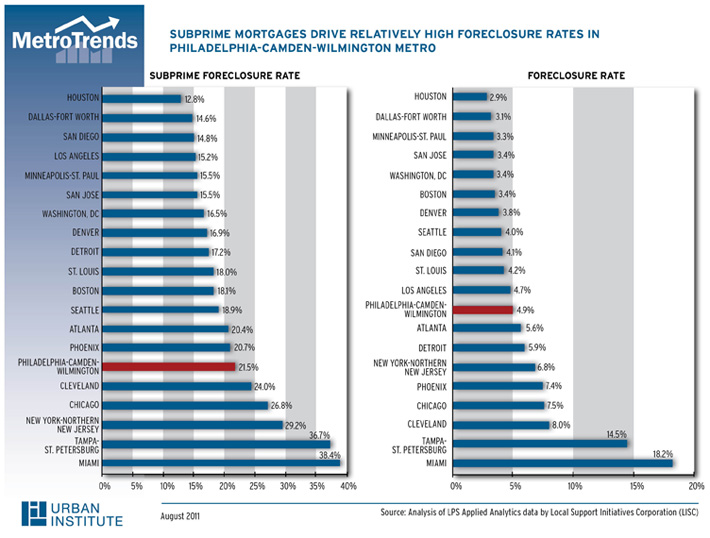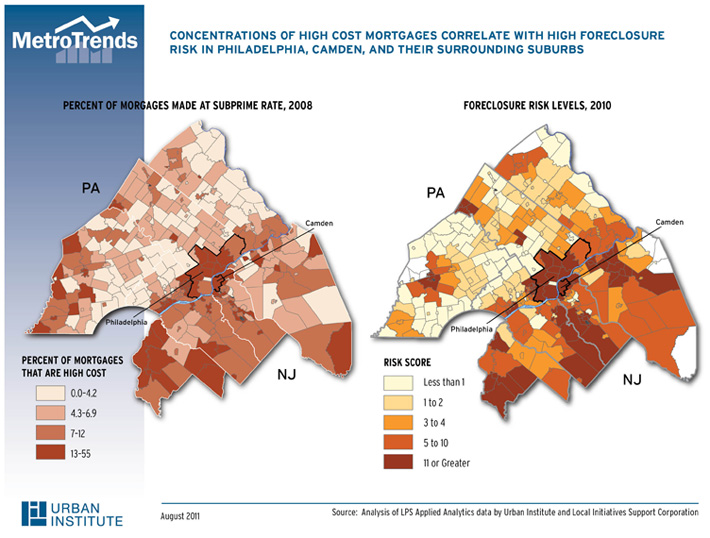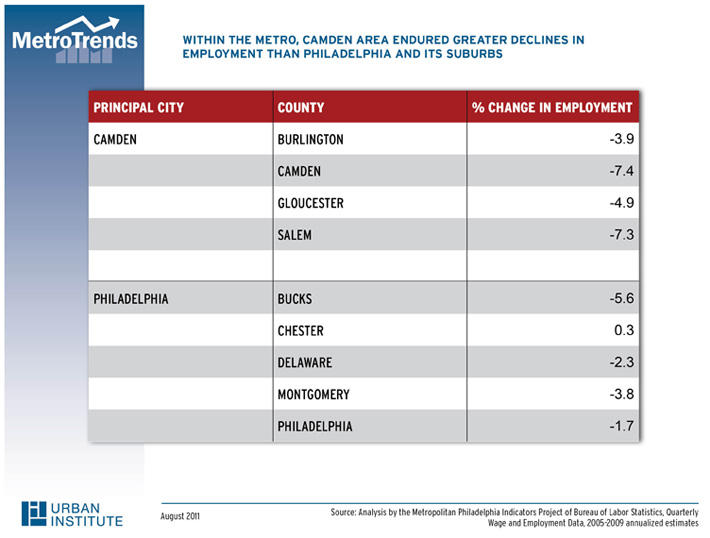
|
|
Metropolitan Spotlights Our metropolitan spotlights focus on selected metros, showing how they're faring relative to others in their region and nationally. High-Cost Mortgages, Foreclosure Impact Philadelphia-Camden-Wilmington MetroThe Philadelphia-Camden-Wilmington metropolitan area, while not experiencing the highest levels of foreclosure, has been significantly affected by the collapse of the subprime mortgage market and the rise in foreclosures. MetroTrends data demonstrate that this metro's rate of high-cost mortgages is slightly lower than across the top 100 metros, strikingly lower than in "Double Trouble" metros, but decidedly higher than in other metros in the Northeast region. In data developed by LISC and the Urban Institute, Philadelphia-Camden-Wilmington metro trends toward the higher end of foreclosure risk rates, as measured by rates of serious mortgage payment delinquency, among the largest 20 metropolitan areas in the country. The area ranks ninth highest in terms of overall foreclosure rate and sixth in foreclosures from the subprime segment of the market. As with most regions, housing markets experience foreclosure at different rates and can expect to rebound at different speeds. The Metropolitan Philadelphia Indicators Project (MPIP), which focuses on a smaller nine county, region within the metro centered around the principal cities of Philadelphia and Camden, analyzed Home Mortgage Disclosure Act (HMDA) data from the end of the subprime boom 2008 and found that both cities and suburbs alike experienced comparatively high levels of subprime/high cost mortgage activity. (This continues a longer term pattern of subprime challenges documented in several reports that can be found at http://mpip.temple.edu.) Just as in the metro as a whole, foreclosure in Philadelphia, Camden, and their suburbs strongly correlates with levels of subprime lending. Analysis of foreclosure risk, a composite score based on multiple risk factors including subprime lending, mortgage delinquencies, foreclosures, and vacancies developed by LISC and the Urban Institute, reveals many of the same patterns in and around the the cities of Philadelphia and Camden. The higher levels of foreclosure risk in the Camden suburbs suggest that elements other than simply the presence of high-cost mortgages may be driving this phenomenon. The experiences of the labor force during the recession appear to have contributed to this spatial concentration of foreclosure risk. Declines in employment have been much higher in Camden and its surrounding counties than across the rest of the region. This also reflects the paradox of housing market recovery - without jobs and wages rebounding, the housing market will continue to react slowly, if at all, to better economic times. In the long run, the region's municipalities face a significant challenge that has been submerged in the recent cutting of state funding and municipal services. If local housing markets do not rebound, the property tax base will be affected. Local services, especially educational and public safety services, have already experienced significant devolutionary pressures from state governments. In a telling piece that appeared in the Philadelphia Inquirer (July 14, 2011), so many staff had been let go that the Office of Vital Statistics was left with 2 people to file all documents relating to births, death, and marriages as well as provide residents with any copies they needed. Police and fire departments in both Philadelphia and Camden have been hit with layoffs and reductions in equipment and operations, as have their public school districts. As we monitor the region over the next year, MPIP is particularly interested in developing measures of fiscal stress that will capture the combined effects of declining tax bases and employment challenges. Both Philadelphia and Camden have already developed balanced budgets for 2012 by significantly increasing property taxes. Philadelphia has some neighborhoods that have experienced price appreciation, even during the recent housing market declines. Many of its neighborhoods as well as significant numbers of communities in its suburbs are facing the difficulties of price depreciation and increasing facing property vacancies as growing challenges for both community well-being and the funding of local government services. |
Share
Feedback Metropolitan Spotlights Related Resources |







